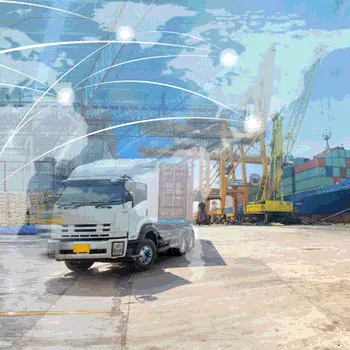Insuring the Safety of Foreign Foods

The protections of the Food Safety Modernization Act (FSMA) extend beyond the borders of the United States. The goal is that any human or animal food, or their ingredients, which are imported into the U.S. must be produced under the same safety standards as food that is produced in this country. The safety standards that are the goals for imported foods are the same as those standards set forth in the preventive control rules for human foods and preventive control rules for animal foods.
Regardless whether foods are manufactured domestically, in a foreign country or a combination of the two, a food product must pass through a risk analysis and the application of preventive controls designed to minimize those risks before it reaches the American consumer.
Like domestically manufactured foods, foods manufactured outside the U.S. must have their preventive controls systems monitored, apply corrections and institute verification processes.
While conceptually the idea of a world-wide consistent and integrated safety plan is exactly what FSMA was designed to create, the distance and foreign borders make the monitoring and verification of preventive controls for imported foods much more difficult. To help with that monitoring and verification, FSMA included two important import-related concepts: the Foreign Supplier Verification Program (FSVP) (issued October 31, 2015) and the Third Party Accreditation Rules (issued November 27, 2015). The two rules work hand-in-hand. An FSVP is the safety control process for imported foods. The Third Party Accreditation Rules provide a means whereby auditors may be certified to assist with requirements overseas.
Compliance
As a threshold matter, responsibility for insuring compliance with FSVP lies with the importer. The importer is defined as the U.S. owner or consignee of a food offered for import into the United States. If there is no U.S. owner or consignee at the time of entry into the United States, the importer is the U.S. agent or representative of a foreign owner or consignee, as confirmed in a signed statement or consent.
There are varying levels of exemptions from FSVP requirements for certain types of importers. The complexity of the exemptions are too numerous to detail here. But an importer that is a manufacturing facility that is in compliance with the requirements contained in the Preventive Controls Rules for Human Food or for Animal Food and is addressing identified hazards in the food or in the supply chain programs will be exempt from FSVP requirements. Such a facility’s preventive controls or supply chain program will address the safety of imported ingredients.
In addition to exempt importers, the following imported foods are exempt from FSVP requirements:
• Juice, fish and fishery products subject to Hazard Analysis and Critical Control Points
• Foods for research or evaluation
• Alcoholic beverages and certain ingredients for use in alcoholic beverages
• Food that is imported for processing and future export
• Low-acid canned foods
• Certain meat, poultry and egg products regulated by the U.S. Department of Agriculture at the time of importation
Foreign Suppliers
Assuming an FSVP is necessary, to whom or what does it apply? A foreign supplier is the person or establishment that manufactures, processes or produces the food, raises the animal or harvests the food that is exported to the United States without further manufacturing/processing by another establishment. A foreign supplier may not simply be one step back from the importer. For example, an intermediary is not a foreign supplier so long as its activities are de minimus, that is, packing, holding food or re-labeling. A grower of produce is the foreign supplier, not the harvester.
For an importer to insure the safety of food coming into this country from a foreign supplier, the importer is responsible for implementing an FSVP, which is essentially a combination of the preventive controls rules and the supply chain program contained in the Preventive Controls Rules for Human Food. When a hazard is identified that can only be controlled upstream in the supply chain, certain actions must be taken to insure that preventive controls occur upstream in that chain. With an FSVP, the upstream hazard identified exists in a part of the supply chain outside of the United States. While difficult to address, an FSVP seeks to manage those foreign hazards.
FSVP Requirements
Component parts of an FSVP include: a) Hazard Analysis; b) evaluation of food risk and supplier performance; c) supplier verification; and d) corrective actions. Ultimately, an FSVP requires the importer to vouch for the foreign supplier of an article of food. These are the processes with which certified third-party auditors can be of assistance and are detailed below
FSVP Hazard Analysis: As with the preventive control rules, a hazard may include any biological, chemical (including radiological) or physical agent that is associated or has the potential to be associated with a food or the facility in which it is manufactured or processed, and is reasonably likely to cause illness or injury in the absence of its control. If such a hazard is known or reasonably foreseeable within a foreign supplier’s facility, it requires a knowledgeable person to establish one or more “controls or measures” to significantly minimize or prevent the hazard. The FSVP Hazard Analysis must be verified and implemented by a qualified individual with the education, training or experience (or a combination thereof) necessary to conduct the Hazard Analysis, based upon training via standardized curriculum or through experience. A Hazard Analysis of a foreign supplier’s facility could be performed by a third party such as certain approved foreign government employees or third-party auditors, so long as the importer reviews and assesses the relevant records of the process. If potential hazards are identified, the foreign supplier’s performance in controlling those hazards must be periodically evaluated.
FSVP Evaluation of Food Risk and Supplier Performance: In addition to analyzing the hazards, the importer must evaluate whether the foreign supplier will be significantly minimizing or preventing those hazards. The importer must evaluate the foreign suppliers’ procedures, processes and practices related to the safety of food, including analyzing any applicable U.S. Food and Drug Administration (FDA) food safety regulations and information regarding the foreign supplier’s compliance with those regulations. The importer must evaluate the foreign supplier’s food safety history, as well as evaluating any other factors as appropriate. An importer can rely on another entity to perform the evaluation of risk, so long as the importer reviews and assesses the relevant documentation. Once a foreign supplier is initially evaluated and approved, the supplier’s performance must be verified on a regular basis.
FSVP Supplier Verification: Supplier verification activities are based on the evaluation of the risk presented by the foreign supplier. Appropriate verification activities are not specifically defined by the rules but are intended to be flexible to address the unique risks associates with the particular food and with the particular supplier. Activities could include annual on-site audits, which are required when the identified risk could result in serious adverse health consequences or death to humans or animals. Verification activities can also include sampling and testing, review of the supplier’s relevant food safety records, etc. An importer can rely on another entity such as a certified auditor to perform the supplier verification activities, so long as the importer reviews and assesses the relevant verification documentation. The importer must establish and follow written verification procedures and may only import foods from suppliers who have been approved through appropriate supplier verification activities.
FSVP Corrective Action: Corrective action must be taken if a foreign supplier has not utilized processes and procedures that provide the same level of public health protection as that provided under the produce safety and preventive controls rules in place in the United States. Corrective action must also be taken if a foreign supplier has produced food that is adulterated or misbranded with respect to allergen labeling. Appropriate corrective action depends on the circumstances but could include discontinuance of use of the foreign supplier until the causes have been addressed.
Each FSVP must contain these four component parts. If an importer utilizes several foreign suppliers, a separate FSVP must be developed for each. If an importer obtains more than one food product from any foreign supplier, an FSVP analysis must be performed for each food product, although there may be some overlap making the process easier.
While the importer is responsible for the FSVP, the responsibilities can be performed by:
If performed by the importer, the processes must be performed or overseen by a qualified individual who has received approved curriculum training (still in development), has equivalent experience and/or both.
An importer may rely upon a foreign government or agency if that government or agency requires the same level of public health protection as those required under the FSMA preventive controls rules. FDA is establishing a systems recognition program under which they will analyze and make a determination as to which foreign governments or agencies provide the “same level of public health protection.”
Certified Auditors
In conjunction with the FSVP Rule, on November 27, 2015, FDA issued its final rule on Accredited Third-Party Certification. This program provides a process for accrediting third-party certification bodies and a process for certifying auditors who can be relied upon to perform hazard analysis and verification activities overseas.
Compliance Dates
Generally, importers must comply with the requirements of the FSVP rule within 18 months after publication (11/27/15). If the foreign supplier is directly subject to FSMA preventive controls rules, compliance with FSVP must occur 6 months after the foreign supplier is required to meet those rules.
If the importer is itself a U.S. manufacturer, the preventive controls rules contain the dates for both complying with preventive controls and for complying with “supply chain programs” that would include the verification of foreign suppliers.
Kathy Hardee, Esq., is co-chair of the Food & Agriculture Industry Group at Polsinelli, PC, which is composed of a team of attorneys from every legal practice area and who each have a focused background in the food industry.
Looking for quick answers on food safety topics?
Try Ask FSM, our new smart AI search tool.
Ask FSM →






